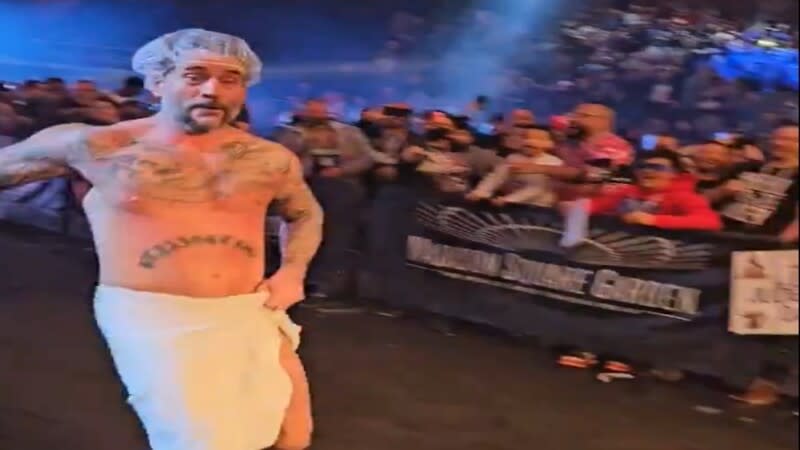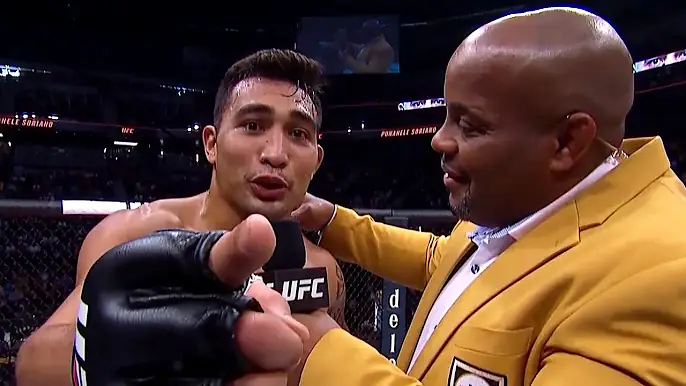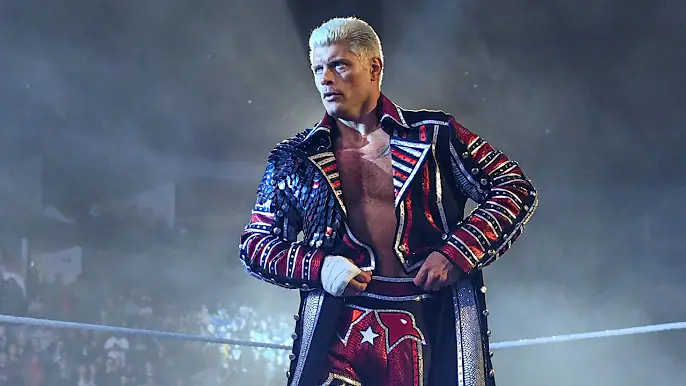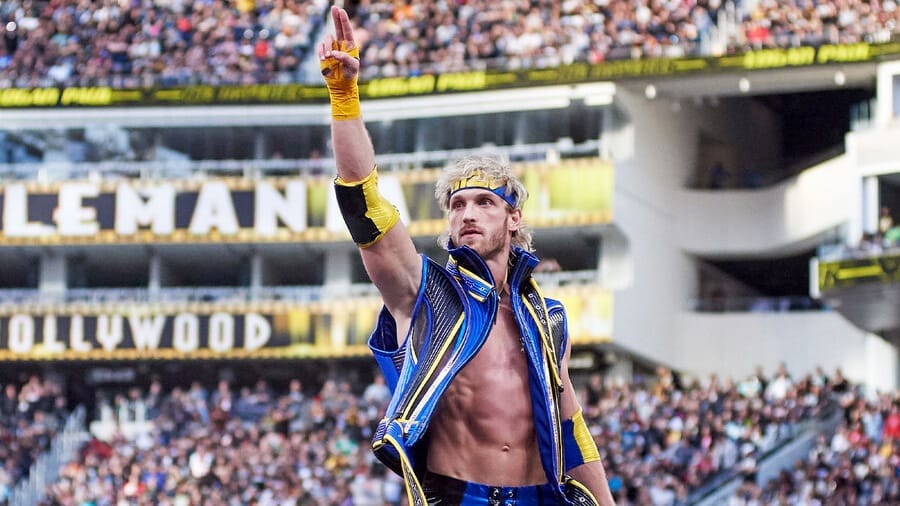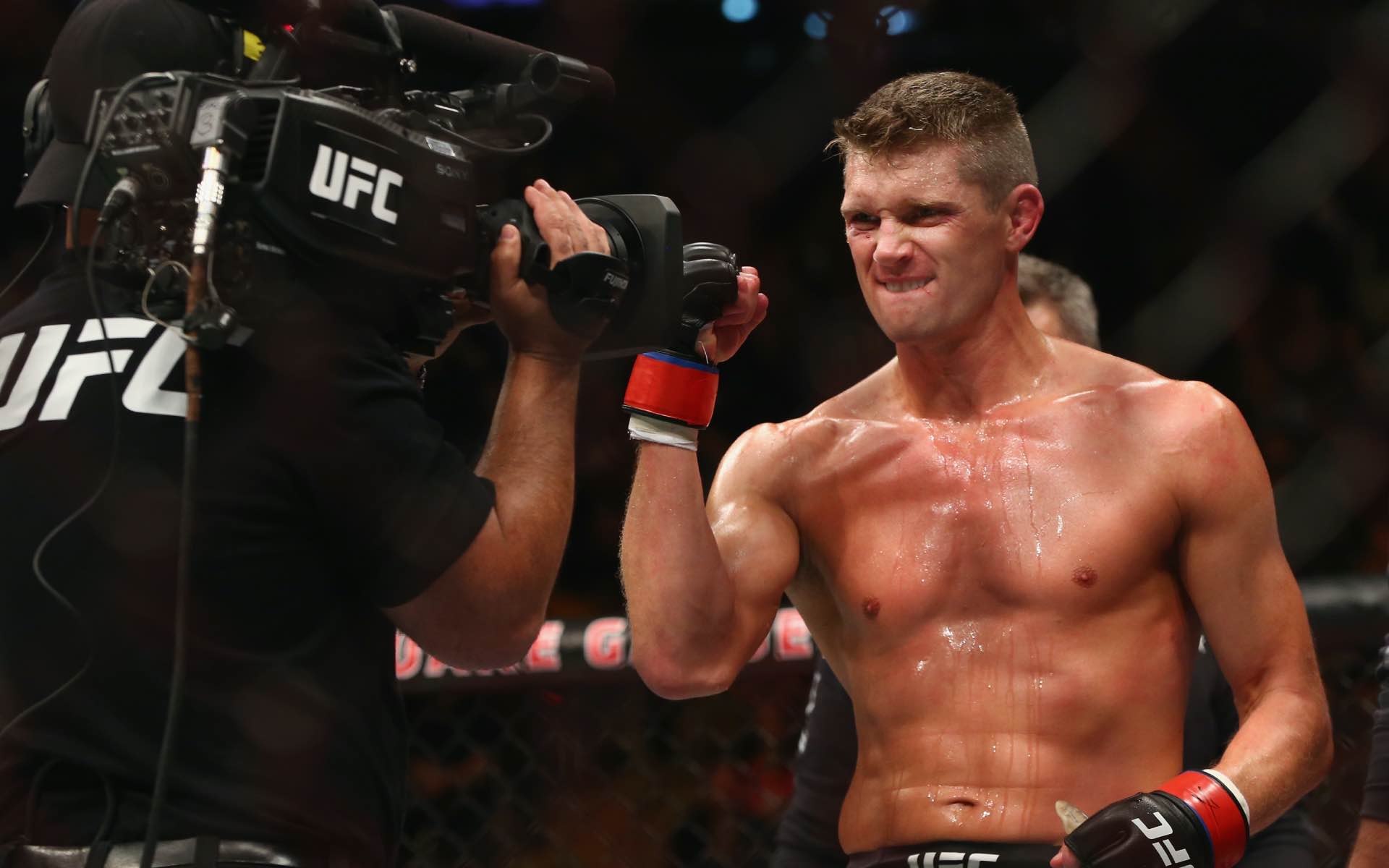Mick Foley’s Many Faces: Cactus Jack, Mankind, and Dude Love
Mick Foley is synonymous with professional wrestling, where the personas and physical fortitude instigate legends. What has made Foley’s career rather remarkable is not just his in-ring talent and resilience but also the fact that this burly wrestler could woo audiences in multiple characters, each having a different charm and character traits. Some of the most famous ones include Cactus Jack, Mankind, and Dude Love. These were characters that, for the most part, played a huge role in the illustrious career of Foley and simply showed his versatility as a performer and deeper knowledge of wrestling psychology.
Early Career and the Birth of Cactus Jack
The man had started his stint in professional wrestling during the mid-1980s. A native of Bloomington, Indiana, Foley, who was a fan of wrestling, had the determination to break into the profession. He trained under the tutelage of the veteran wrestler Dominic DeNucci and soon entered the independent circuit. It was at this time that Foley made his first foray into the world of wrestling with Cactus Jack. Then came Cactus Jack, the persona whose name was taken from the nickname of Foley’s father. He burst on the scene as an untamed, hardcore wrestler who would go through the most imaginable pain en route to his victories. This character quickly picked up attention because of his fearless approach and brutal matches. As already mentioned, Foley’s portrayal of Cactus Jack was raw and uncensored, in stark contrast to the more polished personalities in mainstream wrestling at that time.
He competed in other organizations, such as World Class Championship Wrestling (WCCW) and Continental Wrestling Association (CWA), before eventually arriving in World Championship Wrestling (WCW).
Cactus Jack’s hardcore wrestling style quickly appealed to fans who were looking for something a little different than the norm in wrestling. His wrestling matches were nothing less than high-risk, use of foreign objects, and a never-say-die fighting spirit. This turn of events to do anything to prove himself ideal for the cause of entertainment naturally made Cactus Jack one of the favorites amongst the followers of ‘Hard-Core Wrestling.’.
Cactus Jack in WCW
In WCW, Cactus Jack became a household name. His feuds with talent like Sting and Vader are still recalled for being hardcore and ruthless. Among the many moments that were really etched into the character of Foley as Cactus Jack is one with Vader in Halloween Havoc 1993. He got concussed and badly injured, but he kept fighting. This made Cactus Jack one of the toughest competitors in wrestling.
Cactus Jack was the epitome of character and illustrated the means of being the hardcore wrestler. With a willingness to mortgage his body and being a master of storytelling, each match was just an event on its own. His promos, carried off with a manic intensity, brought character into the enterprise. He wasn’t just a wrestler; it was one of those forces of nature that characterize chaos and unpredictability—the very essence of hardcore wrestling for Cactus Jack.
Very important was the feud with Vader. With his notoriously stiff wrestling style and his immense, almost brooding presence, this character presented exactly the challenge that Cactus Jack needed to face. Their matches were bloody and vicious, with both perpetrators attempting to push the envelope of what was allowable in professional wrestling at that time. This helped raise Cactus’s standing higher in terms of being a hardcore icon.
Transition to WWE and the Birth of Mankind
The year 1996 brought with it the signing of Mick Foley with the World Wrestling Federation (WWF, known as WWE today). It was during this stint that he was introduced to the world as Mankind, but a character who would go on to be one of the most loved and complicated characters in wrestling history. Mankind was the antithesis of Cactus Jack, the hardcore brawler. He was the sadistic, psychologically tormented individual who wore a leather mask, living in boiler rooms.
The horror movies and dark psychological themes have left an inescapable mark on the character of Mankind. He just did justice with the Foley’s character of Mankind. The churning of inner self, its unpredictability, made this persona both sympathizing and terrifying. The first rivalry ever faced by Mankind was against The Undertaker and it turned out to be one of the most unforgettable feuds in the history of WWE.
Most notably, his matches, such as Hell in a Cell at King of the Ring 1998, have been telling stories of Foley’s ability to take insufferable pain for the sake of the match.
Perhaps the most infamous incident in Foley’s career is the Hell in a Cell scenario in which the Undertaker tossed Mankind off the top of the Cell, and Mankind crashed down squarely onto the announcers’ table. A little later, Mankind was chokeslammed through the cell roof and crashed down onto the ring canvas below. Foley again stood the odds of surviving the falls to soldier on., forever etching his status as one of wrestling’s greatest tough men.
His psychological feud with Mankind was also one for the ages. The tortured soul antics and unpredictability really took their personal feud to a whole other level of depth. Another nomination to the creative and storytelling of battles between Mankind and The Undertaker is the Boiler Room Brawl from SummerSlam 1996.
The Gimmick of Dude Love
If Mankind and Cactus Jack represented the dark and violent sides of Foley’s psyche, then Dude Love was his complete antithesis. A character Foley came up with in his teenage years—a throwback to 1960s hippie culture—a reflection of his love for flamboyant pro wrestlers like Jimmy Snuka, Dude Love was actually very laid-back, fun-loving, in the spirit of peace and love.
In WWE, Dude Love emerged as a friend to Stone Cold Steve Austin as he fought in his battles against the Corporation. Now, here it is the stark contrast between Austin’s terse persona, all hard and anti-authority, and the lightheartedness of Dude Love is just an enjoyable dynamic. However funny Dude Love might be among the great WWE characters, there is no doubt that in the ring, it does not make Foley a softy.
The character of Dude Love allowed Foley to really shine comedically. His promos and comedy bits as Dude Love were oftentimes very funny, working perfectly as a sort of lighter complement to his very heavy storylines as Mankind and Cactus Jack. The ease with which Foley switched back and forth between these completely different personas was proof of his tremendous range as a character.
Some of the more memorable storylines with Dude Love were the ones where he was feuding with Vince McMahon and Stone Cold Steve Austin. This resulted in the story character of Dude Love transitioning from a lovable and passive character to a corporate stooge, on the side of McMahon versus Austin. This heel turn elevated the maturity of the Dude Love character and went as far to prove that Foley was very capable of changing and embracing his personas.
The Three Faces of Foley
How one person can effectively manage multiple personas all at once must be bordering on uncanny concerning Mick Foley. What is most telling, however, regarding this fact is not it being how this was first demonstrated way back in 1998 during the Royal Rumble, in which he began the match with all three of those characters, Cactus Jack, Mankind, and Dude Love, but it opened a lot of eyes to the ingenuity and depth of what Mick Foley was able to create in those characters.
Each would bring something completely different. There was hardcore legend Cactus Jack, tortured soul Mankind, and Dude Love, the funky, romping grappler. They Yugoslavized on the many faces of Mick Foley’s wrestling pursuits. The Three Faces of Foley was to epitomize his everyman-ness, his ability to get over in strange and new ways.
Foley’s 1998 Royal Rumble entrance was testament to the ability of Mick Foley to entertain and shock the wrestling world. Getting entrance as three different characters in the match was a great sense of his commitment to this art and will to strive above, in order to serve and entertain the largest commoners. This remains one of the most infamous and loved moments in his career by many.
Legacy and Impact as a Professional Wrestler
Mick Foley’s career is a testament to how far the effectiveness of character work could take someone in professional wrestling. The only additional skill was in creating and embodying three different characters. For one reason or another, the audience connected with each of them, which at the end of the day is a testament to Foley’s much deeper understanding in the areas of wrestling psychology and storytelling.
Cactus Jack’s legacy remains within the hardcore wrestling scene. In his overly short yet gloriously punishing matches, Foley, as Jack Cactus, made a whole new seminal mark for brutality and the threshold of how much an individual can take and make it through to keep fighting. His ability to go one step too far for the sake of amusing the masses and hence risking the insurmountable has been admired by some of the most stone-hearted fans. Cactus Jack’s impact has been enormous on the careers of most of today’s hardcore wrestlers, who owe their successes to the gentleman who they take as their motivation.
The impact from mankind was not only on the hardcore wrestling but in the character itself; its depth and being complex. Mankind really brought out the psychological part of telling stories in wrestling as far as career portrayals go for Mick Foley. Whom could he have forgotten in The Hell in a Cell against The Undertaker? It is one of the best matches ever that has been etched into the audience’s memory for a long time in the history of WWE.
While Dude Love wasn’t as overwhelming as Cactus Jack or even Mankind, he was a much-needed character who was drastically different but allowed Foley to get the message he needed to cross, show his versatility, and beg for keen comic relief from fans. His career last year was a bit lighter on account of these four different types of air that Mick Foley had to give the audience. They provided new air during the Dude Love segments and promos that proved Foley could do anything.
The contribution of Mick Foley to professional wrestling is not limited to his in-ring personas. He is a bestselling author, who wrote several books, among them an autobiography, “Have a Nice Day: A Tale of Blood and Sweatsocks.” Many people have praised Foley’s writing for its honesty and look inside the wrestling world. His books indeed really opened the eyes of fans by making him understand more about his career and what he went through in accomplishing everything.
The greatest contribution from Foley was in the world of philanthropy. He is known for his charity works, especially through his work in organizations like RAINN and the Make-A-Wish Foundation. Every charity Mr. Foley knows it will be directly proportional to the degree of respect and honor he earns from the multitudes.
The Real Spark : Mick Foley Backstory
Apart from wrestling and writing, Mick Foley indulged himself in several other careers as well. He acted in various television programs and films and proved that he could do everything away from the wrestling ring. Foley appeared in guest-starring roles in episodes of “30 Rock,” “Boy Meets World,” and films “Anamorph” and “Big Money Hustlas.” He showed that with his charisma and special personality, it was easy for him to move on.
Foley has also on occasion tried his hand at stand-up comedy and has indulged in booking shows in the width and breadth of the United States to overseas. He also shares much about wrestling experiences, and thus, “. fans walk away with a funny, inside look at the career of one of the greatest sports entertainers of all time.” This indicates he not only is also versatile but his simply outstanding appeal to audiences is outstanding.
Another notable one is the podcasting venture of Foley. He appeared on many podcasts as a guest star and he talked on many things that concerned his careers in the wrestling world. Indeed, when it comes to reminiscing, or just letting out some good chatter, Foley is a very popular person among podcast styles.
Personas of Influence
How Mick Foley’s Alter Egos Changed Wrestling Culture
The impact of Mick Foley’s characters indeed transcends the wrestling ring. With traces left in wrestling culture indelible, each of his alter egos has continued to influence wrestling over generations of new wrestlers and wrestling fans. Cactus Jack had really carried the torch for that dreadful, ferocious style later made famous by such promotions as ECW— Extreme Championship Wrestling. His series of matches as Cactus Jack had proven once again that wrestling could be both brutal and artistic, and this inspired a whole new wave of hardcore wrestlers, willing to take their sport to new levels.
His character was of a psychological depth virtually unmatched in the history of professional wrestling. Demonstrating through his character, Mankind, that a deeply complex multi-dimensional wrestling character could work, Foley specifically showed a generation of wrestlers exactly how it would be done in the future. The use of wrestling psychology in storyline and angles became increasingly the norm, and partial credit for that might be given to the success of Mankind. The amusing character of Dude Love played up the required charisma and entertaining needed in wrestling.
The aptness of Foley at transitioning between serious and funny characters showed wrestling as capable of being a serious as well as a hilarious game. Such balance of seriousness and humor has then flavored contemporary wrestling and numerous wrestlers today shaping tendencies from Dude Love’s character.
Conclusion
Mick Foley is the story of endeavor, creativity, grit, and passion itself in a biographical roll. The capacity to envisage and embody multiple legendary characters—Cactus Jack, Mankind, and Dude Love—all proved that Mick Foley was definitely one of the best dynamic performers in the history of the professional wrestling world. These ideas, for a third time, unveiled another aspect of the world of wrestling but also spoke of his talent, his deep vision, to explain stories. It was this hardcore legacy of Cactus Jack, mixed with the psychological depth of Mankind and the comedic charm of Dude Love, that all stitched together to make this tapestry—these three faces of Mick Foley. His contributions to professional wrestling have gone beyond his performances inside the squared circle, including writing and philanthropic efforts.
The many faces of Mick Foley prove him to be the epitome of character work in professional wrestling—not for the athletic aspect but for the stories one can tell or the creativity to resonate with a wild crowd. Indeed, it is a league of legacy, and this just might have been the implication that penetrates through so many future generations rising up through this business, proving that in professional wrestling, sometimes the most long-standing of legacies are those established from character.

